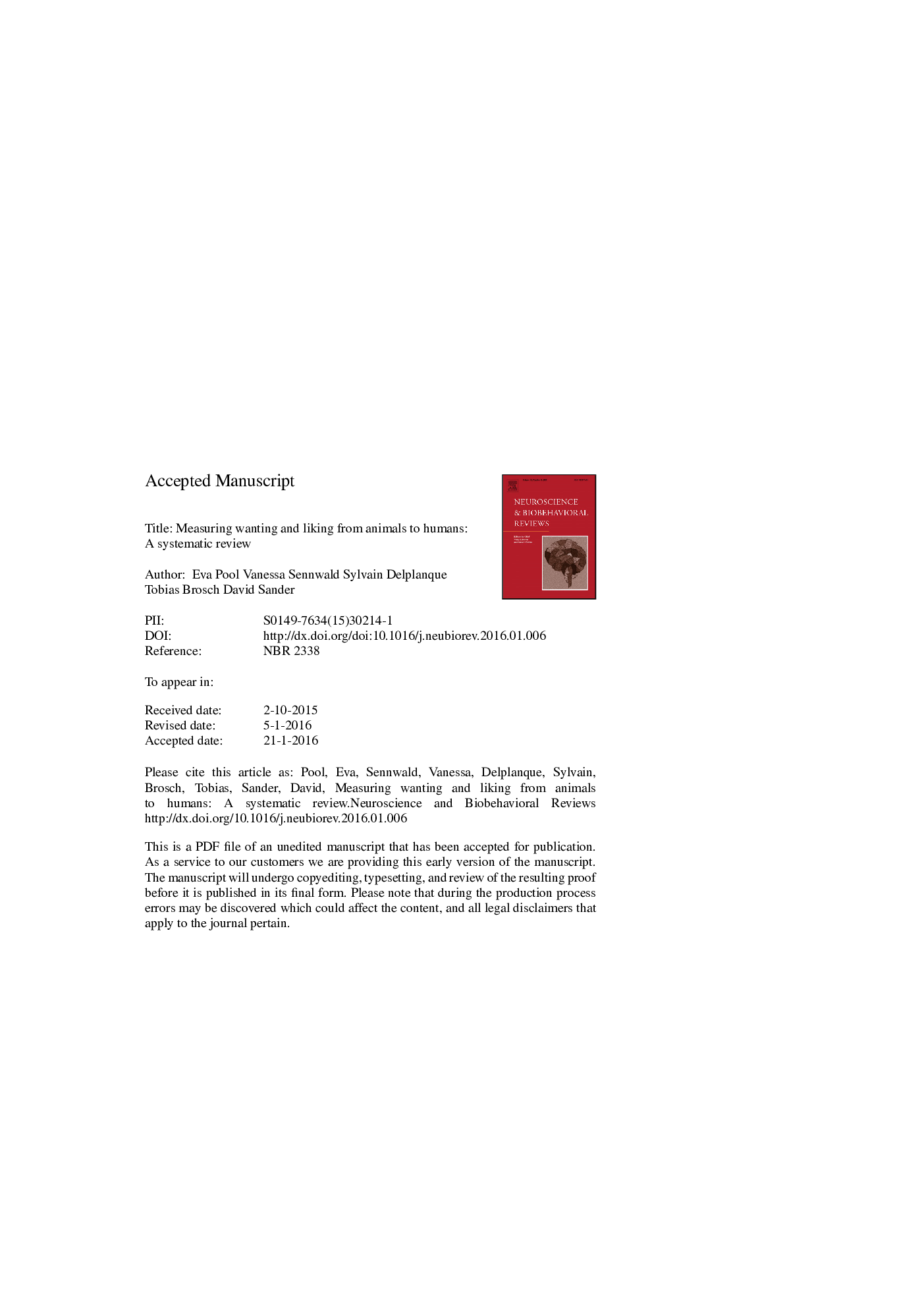| Article ID | Journal | Published Year | Pages | File Type |
|---|---|---|---|---|
| 7302993 | Neuroscience & Biobehavioral Reviews | 2016 | 71 Pages |
Abstract
Animal research has shown it is possible to want a reward that is not liked once obtained. Although these findings have elicited interest, human experiments have produced contradictory results, raising doubts about the existence of separate wanting and liking influences in human reward processing. This discrepancy could be due to inconsistences in the operationalization of these concepts. We systematically reviewed the methodologies used to assess human wanting and/or liking and found that most studies operationalized these concepts in congruency with the animal literature. Nonetheless, numerous studies operationalized wanting in similar ways to those that operationalized liking. These contradictions might be driven by a major source of confound: expected pleasantness. Expected pleasantness underlies cognitive desires and does not correspond to animal liking, a hedonic experience, or to animal wanting, which relies on affective relevance, consisting of the perception of a cue associated with a relevant reward for the organism's current physiological state. Extending the concept of affective relevance and differentiating it from expected pleasantness might improve measures of human wanting and liking.
Related Topics
Life Sciences
Neuroscience
Behavioral Neuroscience
Authors
Eva Pool, Vanessa Sennwald, Sylvain Delplanque, Tobias Brosch, David Sander,
